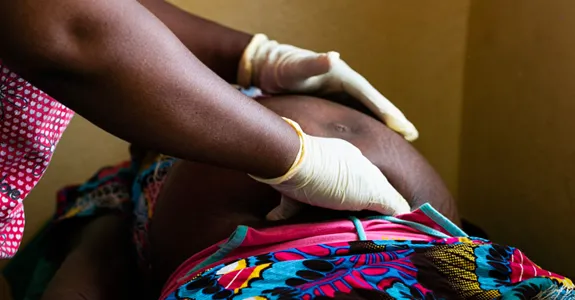
Virginia D. Winn, MD, PhD, is a Professor of Obstetrics and Gynecology at Stanford University, the Director of Reproductive, Stem Cell and Perinatal Biology at Stanford School of Medicine's, and the Program Director for the Women’s Reproductive Health Research (K12) at Stanford Program. Dr. Winn received both her PhD training and medical education from the University of Rochester School of Medicine and Dentistry (in 1994 and 1996 respectively.) She completed her OBGYN residency and MFM fellowship at UCSF. She received research training through the NIH-funded Reproductive Scientist Development Program (RSDP). Dr. Winn was on faculty at University of Colorado and from 2006 to 2014 leading a basic and translational NIH-funded research program. She then moved to Stanford in 2014. She is Board Certified in Obstetrics and Gynecology and Maternal and Fetal Medicine from the American Board of Obstetrics and Gynecology.
As a physician scientist, Dr. Winn’s ultimate goal is to examine human placental biology and translate findings to improved clinical care resulting in healthier mothers and babies. Her lab uses a combination of molecular, cellular, tissue and translational studies in their research.
Dr. Winn is a member of the Dunlevie Maternal-Fetal Medicine Center for Discovery, Innovation and Clinical Impact, the Maternal and Child Health Research Institute (MCHRI), the Stanford Cardiovascular Institute, BioX. She is a recipient the MCHRI Arline & Pete Harman Faculty Scholar award, and is currently a H&H Evergreen Scholar.
The Winn Laboratory seeks to understand the unique biological mechanisms of human placentation. While the placenta itself is one of the key characteristics for defining mammals, the human placenta is different from most available animal models: it is one of the most invasive placentas, and results in the formation of an organ comprised of cells from both the fetus and the mother. In addition to this fascinating chimerism, fetal cells are deeply involved in the remodeling of the maternal vasculature in order to redirect large volumes of maternal blood to the placenta to support the developing fetus. As such, the investigation of this human organ covers a large array of biological processes, and deals not only with understanding its endocrine function, but the physiologic process of immune tolerance, vascular remodeling, and cellular invasion.

